
Patrick Pester
Patrick Pester is the trending news writer at Live Science. His work has appeared on other science websites, such as BBC Science Focus and Scientific American. Patrick retrained as a journalist after spending his early career working in zoos and wildlife conservation. He was awarded the Master's Excellence Scholarship to study at Cardiff University where he completed a master's degree in international journalism. He also has a second master's degree in biodiversity, evolution and conservation in action from Middlesex University London. When he isn't writing news, Patrick investigates the sale of human remains.
Latest articles by Patrick Pester

'3I/ATLAS is a comet': NASA finally releases new 3I/ATLAS images and addresses alien rumors
By Patrick Pester published
NASA's highly anticipated comet 3I/ATLAS images have been released, with a space agency official shooting down alien rumors and stressing that the interstellar visitor is a comet.

That was the week in science: New Glenn launch | China's astronauts return | 'Other' ATLAS explodes
By Ben Turner, Patrick Pester, Tia Ghose, Alexander McNamara last updated
Live blog Friday, Nov. 14, 2025: Your daily feed of the biggest discoveries and breakthroughs making headlines.
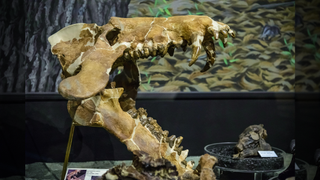
Giant North American 'hell pigs' could crunch bones like lions 30 million years ago, tooth analysis reveals
By Patrick Pester published
Archaeotherium, or North American "hell pigs," had different feeding strategies depending on their size, according to preliminary research presented at the Society of Vertebrate Paleontology 2025 annual meeting.

Chinese astronauts are back on Earth after suspected 'space junk' strike left them stranded in space
By Patrick Pester published
The Shenzhou-20 crew of Chen Dong, Wang Jie and Chen Zhongrui have landed back on Earth after a suspected piece of space junk left them stranded on China's Tiangong space station.

No, comet 3I/ATLAS hasn't exploded — and no, that doesn't mean it's an alien spaceship
By Patrick Pester published
Comet 3I/ATLAS appears to be normal and intact, despite some reports that the interstellar visitor exploded after its brush with the sun.

That was the week in science: Comet 3I/ATLAS glows green | Roman roads | Bear attacks
By Ben Turner, Patrick Pester last updated
Live blog Monday, Nov. 3 to Friday, Nov. 7, 2025: The week's biggest discoveries and breakthroughs that made headlines.

Irradiated Comet 3I/ATLAS glows green and hides its tail in new image
By Patrick Pester published
A researcher has captured comet 3I/ATLAS glowing green and hiding its tail in a new image from the Lowell Observatory's powerful Discovery Telescope as we enter a critical observation phase for the interstellar visitor.
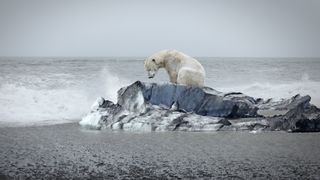
Global warming is forcing Earth's systems toward 'doom loop' tipping points. Can we avoid them?
By Patrick Pester published
Earth may be on the verge of crossing several climate change tipping points that could have irreversible and devastating consequences. Here's everything you need to know about these "points of no return."

6 million-year-old ice discovered in Antarctica shatters records — and there's ancient air trapped inside
By Patrick Pester published
Researchers have found 6 million-year-old ice in the Allan Hills region of Antarctica and say the oldest-of-its-kind sample offers an unprecedented view into Earth's ancient climate.

Astronomer reveals first look at Comet 3I/ATLAS as it reappears from behind the sun
By Patrick Pester published
An astronomer has snapped comet 3I/ATLAS using the Lowell Observatory's powerful Discovery Telescope, as well as his own small telescope. The new photos are believed to be the first optical observations of the interstellar visitor since it disappeared behind the sun.
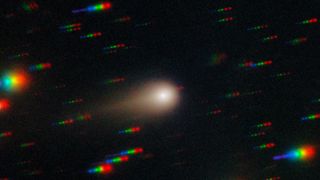
Comet 3I/ATLAS has been transformed by billions of years of space radiation, James Webb Space Telescope observations reveal
By Patrick Pester published
The interstellar comet 3I/ATLAS has a thick irradiated crust that no longer resembles its home star system, simulations and James Webb Space Telescope observations have found.

NASA spacecraft reveal interstellar comet 3I/ATLAS brightened rapidly as it swooped behind the sun
By Patrick Pester published
Interstellar comet 3I/ATLAS is briefly out of view as it travels around the sun this week, but researchers and amateur astronomers used spacecraft data to track its progress right up until perihelion.
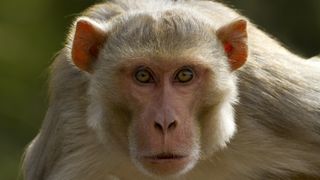
Lab monkeys on the loose in Mississippi don't have herpes, university says. But are they dangerous?
By Patrick Pester published
Authorities have killed several lab monkeys that escaped from an overturned truck in Mississippi. The rhesus macaques were initially thought to be diseased and dangerous, but that's not necessarily the case.
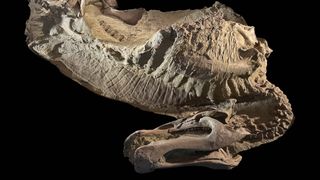
First-ever 'mummified' and hoofed dinosaur discovered in Wyoming badlands
By Patrick Pester published
Researchers have unearthed two dinosaur "mummies" in the badlands of Wyoming, confirming duck-billed dinosaurs had hooves, alongside a string of other discoveries.
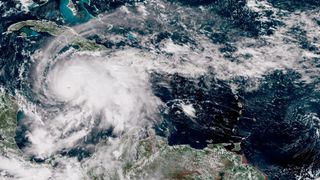
Watch Air Force fly inside the eye of Hurricane Melissa as experts warn 'storm of the century' will be catastrophic for Jamaica
By Patrick Pester published
The U.S. Air Force's "Hurricane Hunters" have flown inside the eye of Hurricane Melissa, capturing eerie footage of the historic storm that has caused widespread devastation in Jamaica.
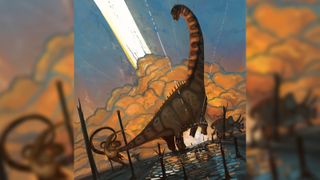
Rare fossils in New Mexico reveal dinosaurs were doing just fine before the asteroid annihilated them all
By Patrick Pester published
New dating has revealed that New Mexico's last dinosaurs were healthy, diverse and thriving at the end of the Cretaceous period, suggesting non-avian dinosaurs weren't in decline before being snuffed out by the asteroid strike.

World's biggest X-ray laser discovers never-before-seen type of ice that's solid at room temperature
By Patrick Pester published
Researchers have unveiled ice XXI, a new form of ice that's solid at room temperatures when subjected to immense pressure.
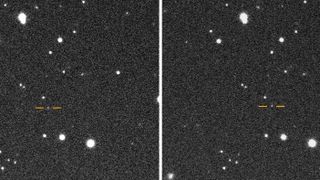
Astronomers discover skyscraper-size asteroid hidden in sun's glare
By Patrick Pester published
The newly discovered "twilight" asteroid, 2025 SC79, was obscured by the sun's glare until an astronomer pointed the Dark Energy Camera at it, highlighting the potential dangers of unseen asteroids.
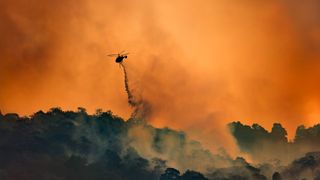
CO2 levels reach record new high, locking in more global warming
By Patrick Pester published
Greenhouse gas concentrations increased by a record amount in 2024 as more carbon dioxide, methane and nitrous oxide became locked in Earth's atmosphere, a World Meteorological Organization report finds.
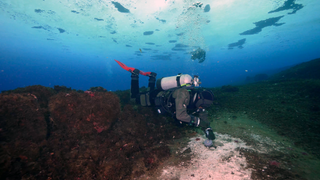
Methane leaks multiplying beneath Antarctic ocean spark fears of climate doom loop
By Patrick Pester published
Researchers have discovered dozens of new methane seeps littering the ocean floor in the Ross Sea coastal region of Antarctica, raising concerns of an unknown positive climate feedback loop that could accelerate global warming.

Hidden 'doomed' star revealed by James Webb Space Telescope could solve decades-old mystery
By Patrick Pester published
Researchers have identified a massive red supergiant on the brink of supernova in images from the James Webb Space Telescope, shedding light on a decades-old star mystery.

Comet 3I/ATLAS is losing water 'like a fire hose' on full blast
By Patrick Pester published
Researchers have discovered that interstellar comet 3I/ATLAS has been shedding water, providing insights into the building blocks of life outside of our solar system and the evolution of interstellar comets.
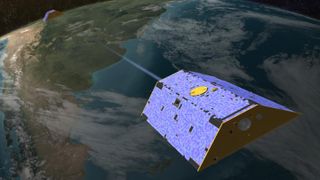
Satellites detected strange gravity signal coming from deep within Earth almost 20 years ago, study reveals
By Patrick Pester published
Researchers have discovered there was an anomaly in Earth's gravitational field between 2006 and 2008, potentially caused by a mineral shift deep within Earth's mantle. GRACE satellites detected a strange gravity signal at the time.
Get the world’s most fascinating discoveries delivered straight to your inbox.


